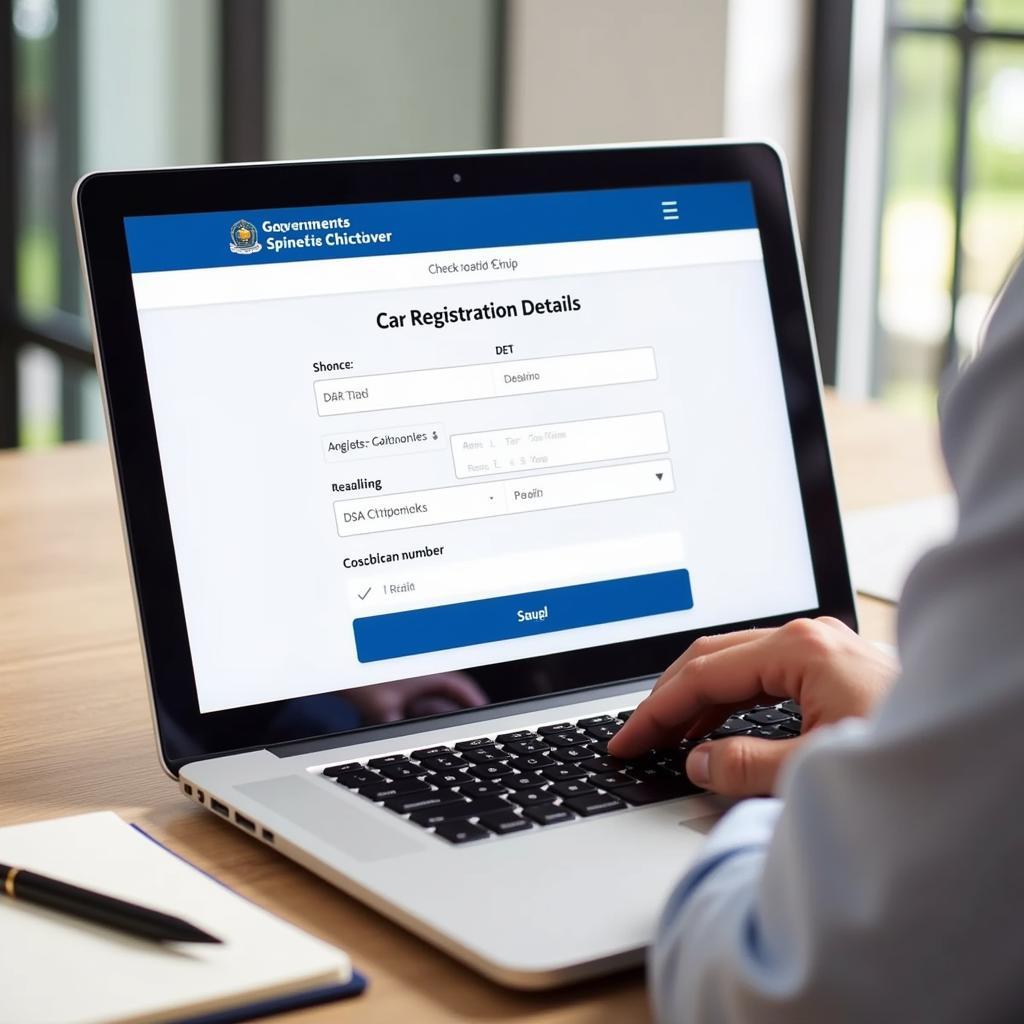Checking your car registration details is crucial for various reasons, from confirming ownership to ensuring your vehicle’s information is accurate. Whether you’re buying a used car, selling your own, or simply want to verify the details on your V5C logbook, understanding how to access this information is essential. This article will guide you through the process of checking your car registration details efficiently and effectively.
Why is Checking Car Registration Important?
Confirming your car registration details is more than just a routine check; it’s a vital step in responsible car ownership. It allows you to verify crucial information about your vehicle, ensuring everything is correct and up-to-date. This can prevent potential issues down the line, such as problems with insurance or legal complications. For instance, if you’re involved in an accident, having accurate registration details readily available can significantly expedite the claims process. Moreover, it protects you from fraud and ensures you’re not unknowingly driving a vehicle with outstanding finance or a hidden history. Knowing how to check your car registration is an essential part of being a responsible driver.
 Checking Car Registration Online via Government Website
Checking Car Registration Online via Government Website
Different Ways to Check Your Car Registration Details
There are several methods to check your car registration, each with its own benefits. The most common ways include using online government services, contacting the DVLA (Driver and Vehicle Licensing Agency), or using third-party vehicle check services. Understanding the differences between these methods can help you choose the best option for your specific needs.
Using Online Government Services
Many countries provide online portals where you can access vehicle information using the registration number. These services are typically quick, convenient, and often free or low-cost. You can usually find details such as the make, model, year of manufacture, and tax status of the vehicle.
Contacting the DVLA
If you require more detailed information or prefer to speak with someone directly, you can contact the DVLA. They can provide a comprehensive history of the vehicle, including previous owners, any outstanding finance, and MOT history. This method may involve a fee and require more time than online checks.
Utilizing Third-Party Vehicle Check Services
Numerous third-party companies offer vehicle history checks for a fee. These services can be a valuable resource, especially when buying a used car. They often provide a more detailed report than free online checks, including information on previous accidents, mileage discrepancies, and outstanding recalls. However, it’s essential to choose a reputable provider to ensure the accuracy and reliability of the information. how to check car details with number plate in india provides some valuable insights in similar processes for a different geographical region.
How Can I Find Details of the Car I Own?
If you own the car, you should have the V5C registration certificate (logbook). This document contains key details about the vehicle, including the registration number, make, model, and engine size. It’s important to keep this document safe and inform the DVLA of any changes to your address or vehicle details.
How to Interpret the Information
Once you’ve accessed the car registration details, understanding what the information means is crucial. For example, checking the MOT history can reveal potential mechanical issues, while a history of multiple owners might indicate a vehicle’s condition. how can i find details of the car i own explains this further.
“Thorough due diligence when checking car registration details is essential, especially when purchasing a used vehicle,” says John Smith, Senior Automotive Advisor at the National Vehicle Inspection Bureau. “It allows potential buyers to make informed decisions and avoid costly surprises down the line.”
Common Scenarios for Checking Car Registration
There are several common situations where checking car registration details is particularly important:
- Buying a used car: Verify the vehicle’s history and ensure the seller’s information matches the registration document. how to find details about my car can be helpful in this situation.
- Selling a car: Ensure your vehicle’s information is accurate to avoid delays or complications during the sale. how do i find out my car details is a good starting point for this.
- After an accident: Confirming accurate registration details can speed up the insurance claim process.
- Suspecting fraud: Check if the vehicle’s details match the registration document to identify potential discrepancies. This is where knowing how to find out car owner details can be extremely beneficial.
Conclusion
Checking your car registration details is a simple yet crucial process for all car owners. Whether you’re buying, selling, or simply want peace of mind, understanding how to access and interpret this information can protect you from potential issues and ensure a smoother car ownership experience. Utilizing the various methods outlined in this article, you can easily verify the accuracy of your car’s information and make informed decisions about your vehicle.
FAQ
- What is a V5C logbook?
- How can I check my car’s MOT history online?
- What information is included in a vehicle history check?
- What should I do if my V5C is lost or stolen?
- How can I update my address on my car registration?
- What does the VIN number tell me about my car?
- Are there any free car check services available?
Need further assistance? Contact us via WhatsApp: +1(641)206-8880 or Email: [email protected]. Our 24/7 customer support team is ready to help.

Leave a Reply